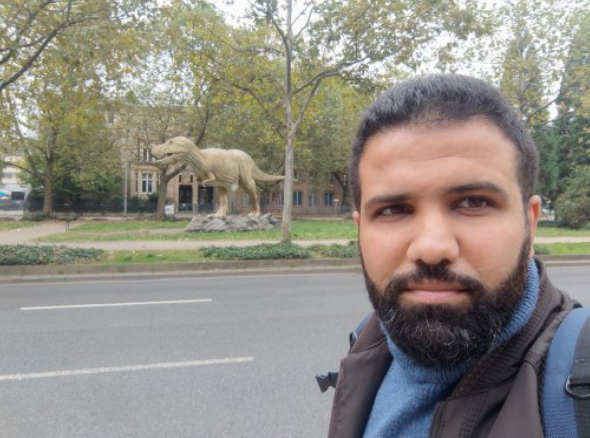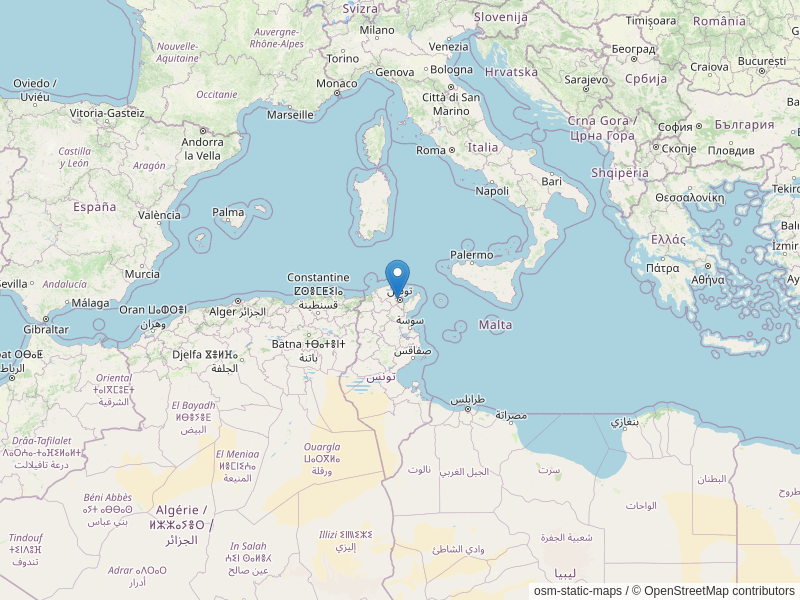Portrait of May 2022

© DAAD Tunis/Privat
DAAD scholarships are highly coveted and associated with a great deal of prestige. For this reason, the demands placed on DAAD scholarship holders worldwide are very high. In addition to the desired subject knowledge, academic achievements, language skills and extra-curricular activities also play a role in the selection process. The DAAD recommends that applicants inform themselves in good time. There are many ways for Libyan applicants to do this: In addition to the monthly online consultation hour at the DAAD Regional Office Tunis, we also offer a weekly phone consultation hour and provide advice by e-mail. Furthermore, online information seminars on various university-related topics are offered on a regular base.
There are also recordings of past events on the YouTube channel of the DAAD Regional Office, which can be accessed at any time. We recommend a lead time of about one and a half years from the first information gathering to the departure for Germany. The selection itself is a multi-stage process. First, an independent selection committee made up of regional university lecturers reviews the applications. Depending on the scholarship program, potential scholarship holders must either present themselves in person (or virtually) or the assessment is done on paper. The interview is usually held in English. This is not the only reason why very good English language skills are necessary for a DAAD scholarship. English will also be an important language of communication later at the German university, not to mention the international literature that has to be mastered.
. In the interview, it is not exclusively a matter of making your professional mark, but also of presenting yourself and your visions. It is important to explain why a stay in Germany is important for your future career and how the stay abroad fits into your academic and professional development. Those applications which have successfully cleared this first hurdle will be forwarded to Germany for the next selection step. Approximately six to eight months after submitting their application, applicants will receive a message from the DAAD with the final result. More detailed information about the DAAD scholarship programs and the respective call for applications can be found in the scholarship database: www.funding-guide.de (http://www.funding-guide.de).
As part of our monthly interviews with alumni, university partners or scholarship holders from the Maghreb, this month we introduce Mohamed Alriadh from Libya. Mohamed has been in Germany since September 2021 thanks to the DAAD scholarship programme “Research Grants” and is working on his dissertation at the University of Frankfurt. Together with his supervisor, he is researching the paleoecological impact in As Sahbi in north-western Libya
- What exactly is your research project about?
My research focuses on the study of fossils from Libya (Sahabi area) especially the mammalian fauna. This study is trying to construct the paleoecology of that area and answers the questions about the changes that happened in the late Miocene – early Pliocene. This slice of time is very important, because it represents a time of major climatic and tectonic turning events in the history of Hominidae.
- What is the added value for you and your Libyan home university in the cooperation with
the University of Frankfurt?
The University of Frankfurt and the Senckenberg natural history museum are very prestigious institutions and I’m extremely privileged to be here. They are also very good places to study if you want to engage in the field of Paleobiology and Paleoecology. I’m sure that the University of Benghazi will be a big part of a long cooperation with these giants in this field and I hope it will be expanded to different fields in the future.
- What are your plans for your academic career once you have completed your doctorate in
Germany?
Before I came here to Germany, I was working as a staff member at the Earth Sciences department at the University of Benghazi. I’m planning to go back there and establish a School and a Museum for the natural History in Benghazi. I will also try to conserve the wildlife which is still endangered by the irresponsible activities of many people, by cooperating with the government and the animal conserving activists.







